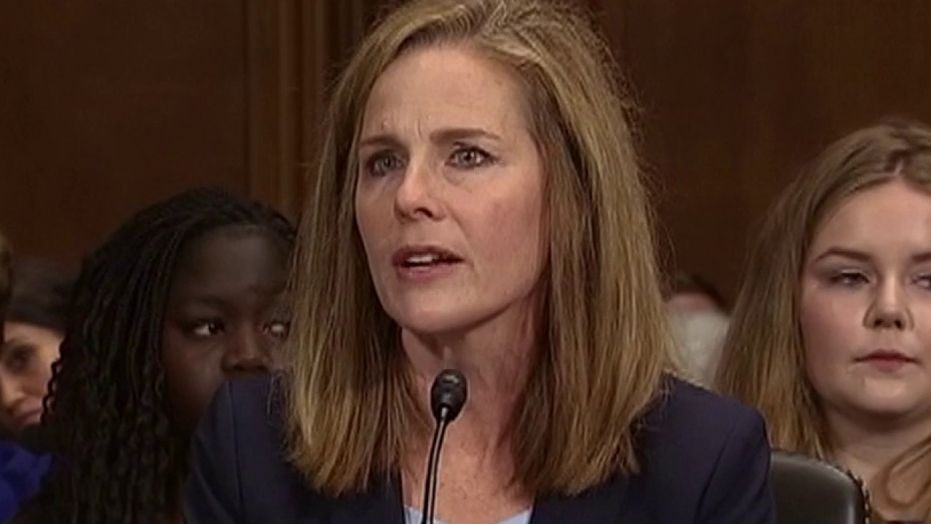The Supreme Court Circus Is Coming Back to Town
by Gary Fouse

Judge Amy Coney Barrett
The death of Supreme Court Justice Ruth Bader Ginsburg has thrown an already chaotic election into more chaos. Ginsburg, a liberal icon, now stands to be replaced by a conservative under PreisTrump and a Republican-controlled Senate. Democrats and liberals are, predictably, in an uproar. They are demanding that Trump hold off a nomination until after the election hoping that a Biden victory, coupled with a Democrat re-taking of the Senate, would allow Biden to make the next selection. They say that a president should not make a Supreme Court nomination in an election year. They are even talking about another impeachment if Trump goes ahead and makes a selection. They are talking about packing the Supreme Court if they take over in January. Others, like former CNN host and UC Riverside professor Reza Aslan, are talking about more drastic measures, like burning everything down.
Unfortunately, the sheer importance of the Supreme Court in the great liberal-conservative divide makes that institution one of the biggest political footballs in the country. Thus, we have been subjected to some very ugly confirmation battles. This one promises to be no different.
To be sure, there has been inconsistency, if not hypocrisy from both sides as to the question of whether a president in the last year of his/her presidency should nominate a Supreme Court justice. It’s a classic case of the shoe being on the other foot.
In the last year of his presidency (2016), President Obama nominated Merrick Garland to succeed conservative justice Antonin Scalia, who had passed away unexpectedly. Republicans argued that in an election season, Obama should have held off nominating anyone and left the pick to his successor. Democrats demanded that hearings be held and a vote taken on Garland, up or down. The Republicans held Congress, so they simply refused to hold hearings until the 2016 election was decided. Trump was elected, and he filled the seat with Neil Gorsuch. Had the circumstances been reversed, like now, the two parties would have reacted according to their political interests.
Take Joe Biden, for example. In 1992 and 2016, he took opposite positions on the question depending on who was president.
It’s not pretty, but that’s how the sausage is made in Washington. It basically comes down to which party holds the White House and the Senate. Reasonable people can agree or disagree with the election year argument, but what matters is this: The president is not bound by whether he or she is in the last year of his or her presidency. The president has the constitutional right and duty to nominate someone when a seat becomes vacant. The Senate has the constitutional right to hold hearings, vote, or not hold hearings at all depending on who controls the Senate. President Trump and Senate leader Mitch McConnell (R-KY) know this, and so they plan to go ahead. They have the Constitution and the law on their side.
They also know that this is going to bring out the worst in the Democrats and the radical left. There is going to be more civil unrest. The Democrats in Congress will react in a manner that is going to turn off most Americans. Trump will likely appoint a woman, and the Democrats in the Senate are going to have to think very carefully before they subject her to what they subjected Clarence Thomas, Robert Bork, and Brett Kavanaugh to.
In short, this should be a plus for Trump and the Republicans in November. Another gallon of gas just got tossed onto an already existing fire. Let the Democrats howl, the louder the better. Similarly, if the Antifas, BLMs, and Reza Aslans want to start burning things, Trump will reap the benefits in November.